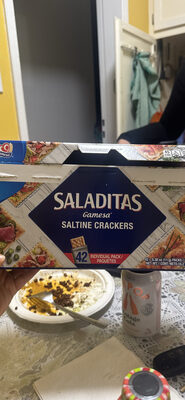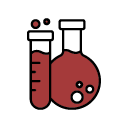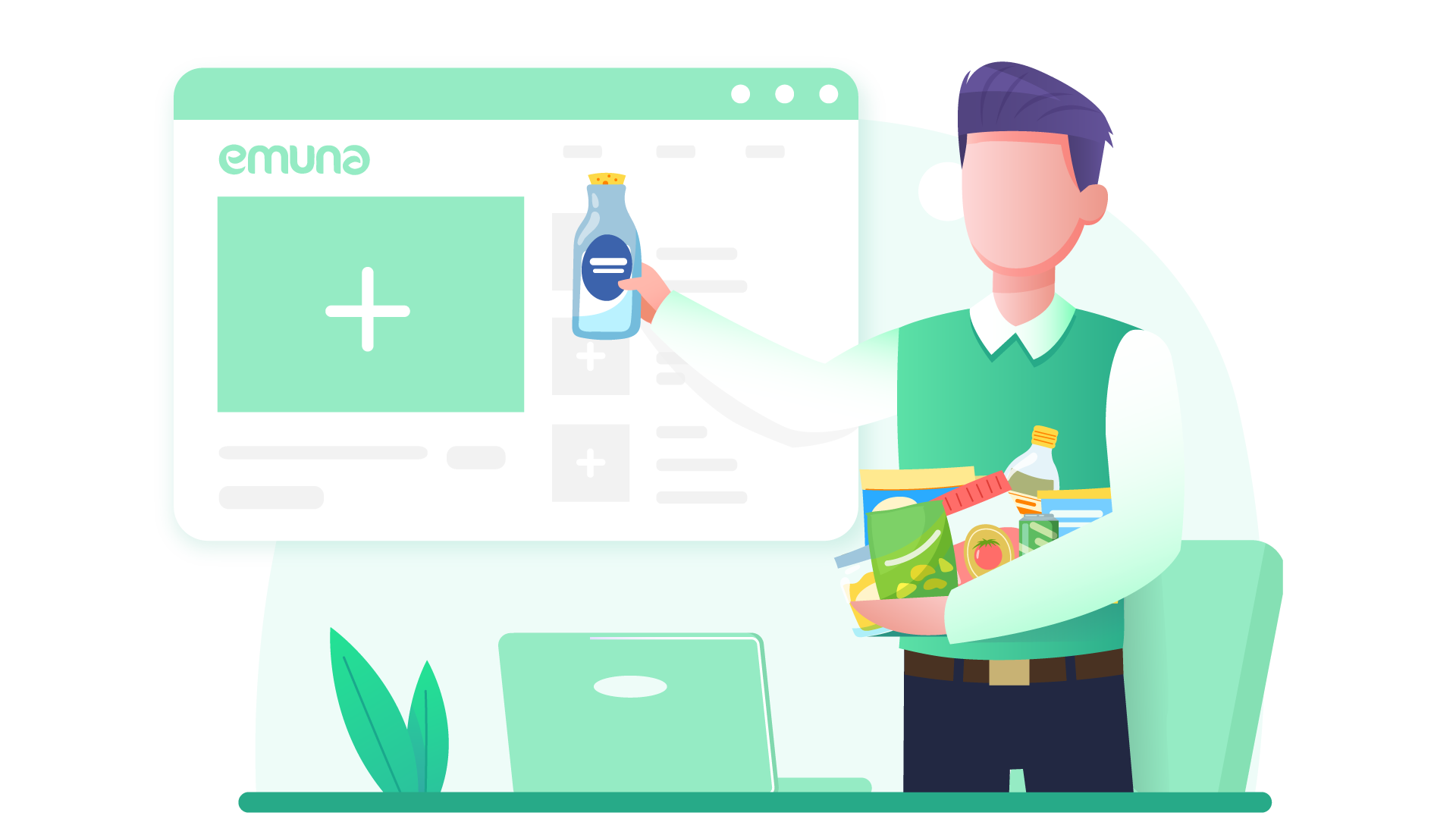
Saladitas
Ingredients
Enriched Flour (Wheat Flour, Niacin, Ferrous Fumarate, Thiamin Mononitrate, Riboflavin, Folic Acid), Palm Oil (Contains TBHQ as preservative), High Fructose Corn Syrup, Iodized Salt, Vegetable Oil Blend (Palm Oil and Rapeseed Oil [Contains TBHQ as Preservative]), Leavening Agents (Sodium Bicarbonate, Diammonium Phosphate), Soy Lecithin, Malted Barley Flour, Yeast, Zinc Oxide, Enzymes, Artificial Flavor.Category
en:crackers
Brand
Gamesa
Sold in

Barcode
0686700000085
Processing
Additives
-
(Lactoflavin or Vitamin B1) Nature-identical dye. Can be obtained from brewer's yeast. Also known as Vitamin B2 and naturally occurs in food. Mostly synthetically produced. Considered safe. Approved for all foods. Maximum dose: 1.4mg (average daily dose).
Not Restricted
-
Generally considered safe, with no known serious risks associated with its use in foods. However, it may cause allergic reactions in some individuals, especially those sensitive to soy or eggs, as lecithin is derived from these sources.
-
Acid regulator, leavening agent, stabilizer; derived from natural minerals or synthetically produced; used in baked goods, beverages, and canned foods. Side effects are rare but may cause digestive issues if consumed excessively.
Not Restricted
-
Anti-caking agent, separating agent; obtained from natural minerals or synthetically produced; used in table salt, spice mixes, and dietary supplements. Generally safe with normal use.
Not Restricted
-
No description
Questionable Ingredients
-
Palm oil is concerning due to its high content of saturated fats and its association with health risks like cardiovascular disease and weight gain. There may also be a link to cancer, although study results are mixed. The WHO recommends limiting daily saturated fat intake, including those in palm oil, to less than 10% of total calorie intake. To minimize health risks, it is advisable to replace palm oil with healthier vegetable oils rich in unsaturated fats.
-
Simple sugar; metabolically stressful in high amounts.
-
Generic flavor declaration without specification.
Additives
-
(Lactoflavin or Vitamin B1) Nature-identical dye. Can be obtained from brewer's yeast. Also known as Vitamin B2 and naturally occurs in food. Mostly synthetically produced. Considered safe. Approved for all foods. Maximum dose: 1.4mg (average daily dose).
Not Restricted
-
Generally considered safe, with no known serious risks associated with its use in foods. However, it may cause allergic reactions in some individuals, especially those sensitive to soy or eggs, as lecithin is derived from these sources.
-
Acid regulator, leavening agent, stabilizer; derived from natural minerals or synthetically produced; used in baked goods, beverages, and canned foods. Side effects are rare but may cause digestive issues if consumed excessively.
Not Restricted
-
Anti-caking agent, separating agent; obtained from natural minerals or synthetically produced; used in table salt, spice mixes, and dietary supplements. Generally safe with normal use.
Not Restricted
-
No description
Questionable Ingredients
-
Palm Oil
Palm oil is concerning due to its high content of saturated fats and its association with health risks like cardiovascular disease and weight gain. There may also be a link to cancer, although study results are mixed. The WHO recommends limiting daily saturated fat intake, including those in palm oil, to less than 10% of total calorie intake. To minimize health risks, it is advisable to replace palm oil with healthier vegetable oils rich in unsaturated fats.
-
Fructose
Simple sugar; metabolically stressful in high amounts.
-
Flavoring (unspecified)
Generic flavor declaration without specification.






